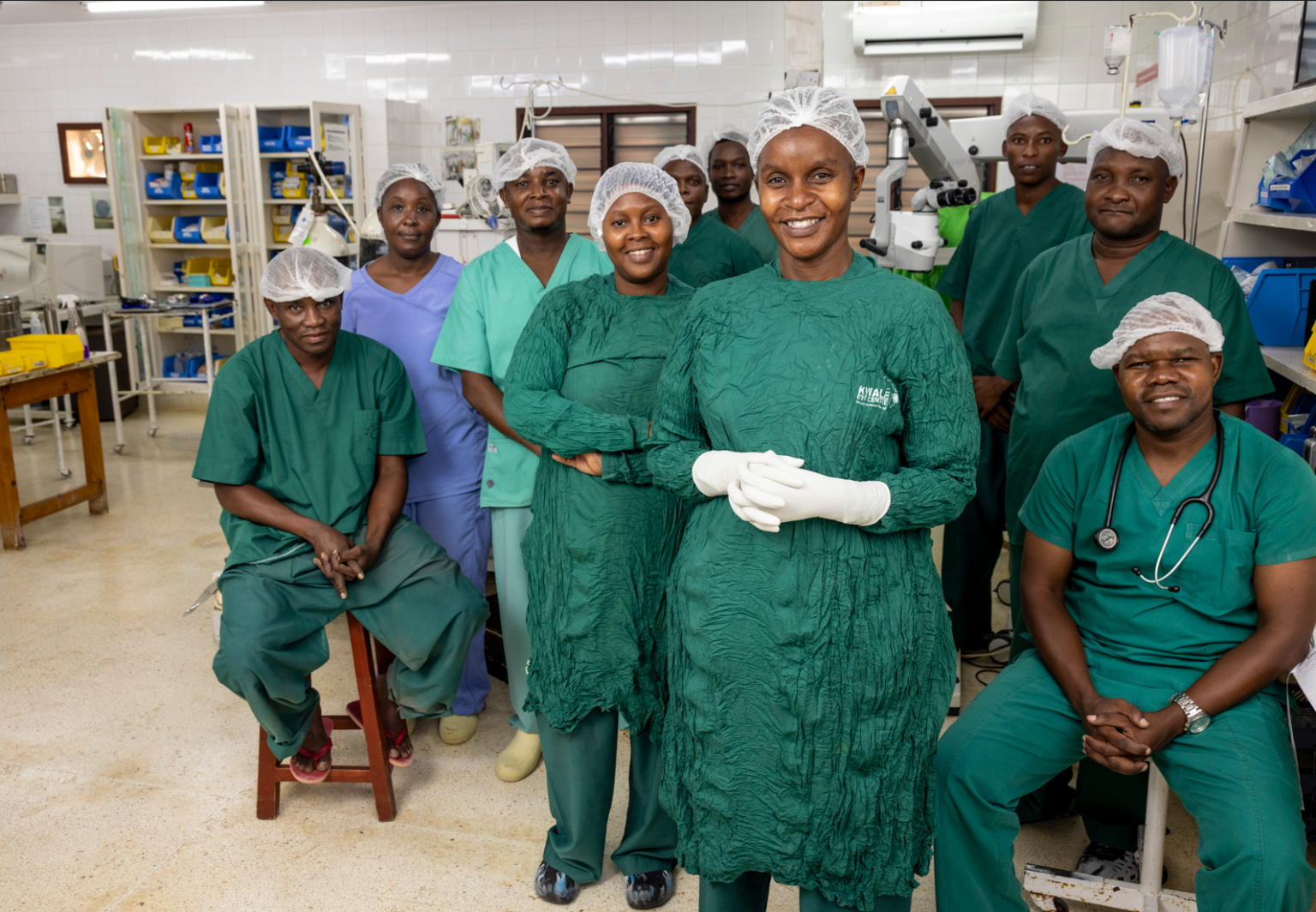Paediatric ophthalmologist Dr Lilian Kwamboka, from the Kwale Eye Unit, with her team.
Almost
everyone will be affected by an eye health or sight issue in their life.
The
Fred Hollows Foundation Kenya Country Director Peter Milo said eye health is a universal
issue, yet it is often overlooked or deprioritised.
“The
consequences are far-reaching – unemployment, poor academic performance, mental
ill health, social isolation, and increased risk of injury and illness,” Mr
Milo said.
New
research from The Fred Hollows Foundation, IAPB and Seva Foundation confirm why
eye health matters.
The Value
of Vision research shows that every $1 invested in eye health can yield a $28
return in low- and middle-income countries. That means that a $7.1 billion
investment in just six priority areas – including expanded community
screenings, access to reading and prescription glasses, and more frequent eye
exams – could unlock a $199 billion economic return in those countries over five
years.
If
further investment and policy changes were implemented and the 1 billion living
with avoidable sight loss were reached, this would result in a $447 billion
boost to the world economy annually.
Paediatric
ophthalmologist Dr Lilian Kwamboka, from the Kwale Eye Unit, has seen these
transformational changes first-hand.
Dr Lilian recalls meeting
a girl from Form 3 (Grade 12) this year. She had operated on her when she was
in Grade 5.
“I couldn’t
recognise her. But she came running and hugging me because now she’s happy and
her vision was 6–6 perfect,” she says.
Dr Lilian also saw
another former patient who is now studying at college.
“He was taller than
me and his mother identifies me as the one who operated on him. It’s nice.
“I enjoy surgery so
much, particularly paediatric surgery. It is my passion. It is very satisfying
seeing a child, or an adult, gain vision,” she says.
But Dr Lilian, from
Kwale Eye Unit in Kenya, says her work is not complete once the patches are
removed.
Follow-up is vital,
Dr Lilian says, because a child’s vision changes in the weeks after their
surgery as their brain adjusts to the sensation of light entering the retina,
and new glasses are needed to ensure clear vision.
She said the role of
the community health workers was central to not just identifying people with
blindness or vision impairment and bringing them to the hospital for surgery,
but to ensuring post-surgical instructions are followed.
“Once they come here
the children get their surgical treatment, but you still need to follow them up
in their homes and bring them back for follow-up.”
“In short, we need a
comprehensive eye care service,” Dr Lilian says.
The Fred Hollows
Foundation, with support from the Australian NGO Cooperation Program (ANCP)
works with the Kwale Eye Unit to provide comprehensive eye care coverage for
people who face barriers accessing services.
The Kwale Eye Unit’s
team of six community health workers are identifying increasing numbers of
children with developmental cataract.
“Developmental
cataract is on the rise. Last year we operated on 137 (patients). It’s on the
rise because they are being identified by the community health workers.”
Otherwise, the
plight of these children would remain hidden.
“They (the parents)
don’t have the means for payment. Most of them are stay-at-home parents and
farmers.
“If good follow-up
is done , they will come back with 99 percent of their vision.”
On this World Sight
Day, we shine a light on the importance of eye health, because protecting our
vision means preserving our quality of life, one clear moment at a time
